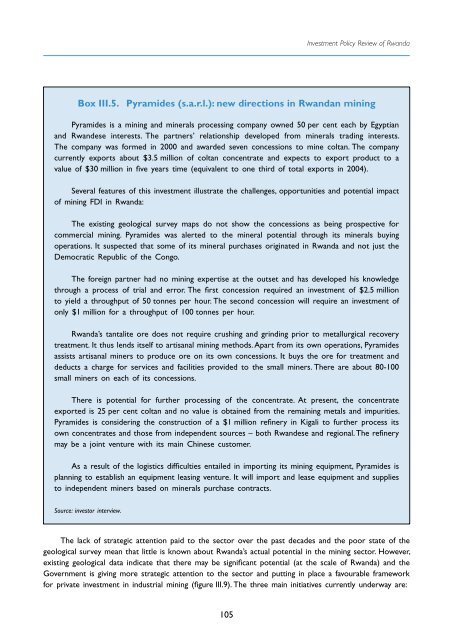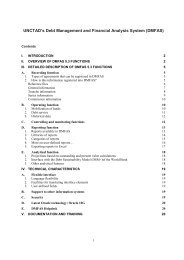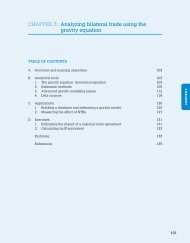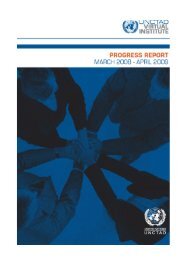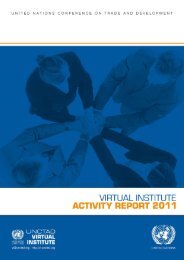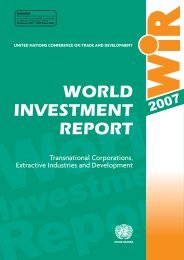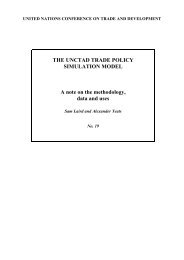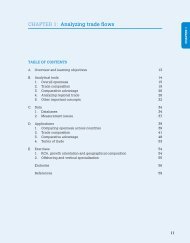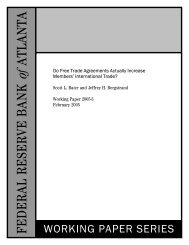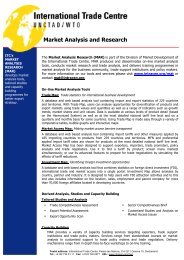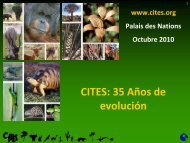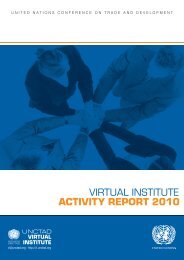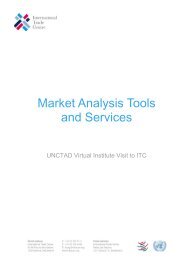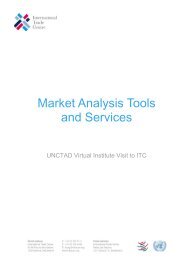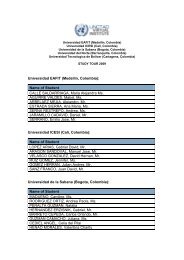Investment Policy Review - Rwanda - UNCTAD Virtual Institute
Investment Policy Review - Rwanda - UNCTAD Virtual Institute
Investment Policy Review - Rwanda - UNCTAD Virtual Institute
You also want an ePaper? Increase the reach of your titles
YUMPU automatically turns print PDFs into web optimized ePapers that Google loves.
<strong>Investment</strong> <strong>Policy</strong> <strong>Review</strong> of <strong>Rwanda</strong><br />
Box III.5. Pyramides (s.a.r.l.): new directions in <strong>Rwanda</strong>n mining<br />
Pyramides is a mining and minerals processing company owned 50 per cent each by Egyptian<br />
and Rwandese interests. The partners’ relationship developed from minerals trading interests.<br />
The company was formed in 2000 and awarded seven concessions to mine coltan. The company<br />
currently exports about $3.5 million of coltan concentrate and expects to export product to a<br />
value of $30 million in five years time (equivalent to one third of total exports in 2004).<br />
Several features of this investment illustrate the challenges, opportunities and potential impact<br />
of mining FDI in <strong>Rwanda</strong>:<br />
The existing geological survey maps do not show the concessions as being prospective for<br />
commercial mining. Pyramides was alerted to the mineral potential through its minerals buying<br />
operations. It suspected that some of its mineral purchases originated in <strong>Rwanda</strong> and not just the<br />
Democratic Republic of the Congo.<br />
The foreign partner had no mining expertise at the outset and has developed his knowledge<br />
through a process of trial and error. The first concession required an investment of $2.5 million<br />
to yield a throughput of 50 tonnes per hour. The second concession will require an investment of<br />
only $1 million for a throughput of 100 tonnes per hour.<br />
<strong>Rwanda</strong>’s tantalite ore does not require crushing and grinding prior to metallurgical recovery<br />
treatment. It thus lends itself to artisanal mining methods. Apart from its own operations, Pyramides<br />
assists artisanal miners to produce ore on its own concessions. It buys the ore for treatment and<br />
deducts a charge for services and facilities provided to the small miners. There are about 80-100<br />
small miners on each of its concessions.<br />
There is potential for further processing of the concentrate. At present, the concentrate<br />
exported is 25 per cent coltan and no value is obtained from the remaining metals and impurities.<br />
Pyramides is considering the construction of a $1 million refinery in Kigali to further process its<br />
own concentrates and those from independent sources – both Rwandese and regional. The refinery<br />
may be a joint venture with its main Chinese customer.<br />
As a result of the logistics difficulties entailed in importing its mining equipment, Pyramides is<br />
planning to establish an equipment leasing venture. It will import and lease equipment and supplies<br />
to independent miners based on minerals purchase contracts.<br />
Source: investor interview.<br />
The lack of strategic attention paid to the sector over the past decades and the poor state of the<br />
geological survey mean that little is known about <strong>Rwanda</strong>’s actual potential in the mining sector. However,<br />
existing geological data indicate that there may be significant potential (at the scale of <strong>Rwanda</strong>) and the<br />
Government is giving more strategic attention to the sector and putting in place a favourable framework<br />
for private investment in industrial mining (figure III.9). The three main initiatives currently underway are:<br />
105


